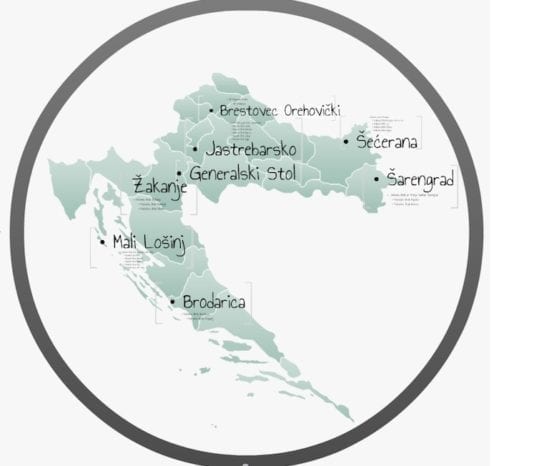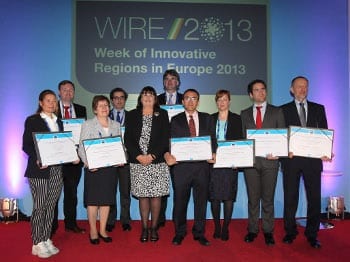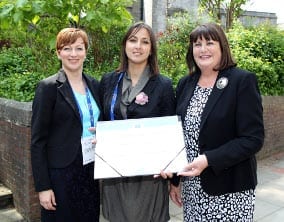Schools 2.0
With the project Schools 2.0, CARNET sought to connect as many schools as possible to a fast internet connection and provide a better quality education and interconnectivity with the help of technology. Thus 27 schools were enabled to collaborate with each other and the whole world.
Pursuant to the Decision of the Government of the Republic of Croatia of 1 September 2011 (class: 650-05/11-03/01, file number: 5030104-11-2 on allocation of funds and criteria and measures to promote the development of broadband infrastructure in areas with no interest for the development and investment in broadband internet access), the Government of the Republic of Croatia allocated the amount of 11.986.616,00 HRK for maintenance and repairs as well as purchase and maintenance of new equipment for existing and new projects on islands and other geographically remote areas (Project e-Islands) all in order to ensure earmarked spending of the allocated funds in the course of the budget year.
CARNET has implemented acclaimed and award-winning project e-Islands which allowed primary schools on islands to access a better quality education and all relevant information for modern-day education. Based on the aforementioned Government decision and encouraged by the e-Islands project, CARNET has not only enabled the development of broadband infrastructure in rural and deprived areas across Croatia, but also insured better quality conditions of education in said areas by using the latest information and communication technology in education through educational-technological models (ETM) tailored to specific needs of each school.
The duration of the project was defined by the Government; thus the start date was 1 January 2012 and the end date was 31 December 2013. The schools were gradually involved through the phases according to well-defined criteria. The level of school involvement depended on the educational-technological model (ETM) to which they fitted.
The goal of CARNET as the project leader was to ensure the widest possible involvement of schools in order to provide access to quality and comprehensive distance-learning and e-learning to a wider number of users – teachers and students. Accordingly, a detailed analysis of the initial state and the needs was conducted, and feedback with best practice examples drawn form the previous e-Islands projects.

List of Schools
These schools were included in the project during the year 2012:
OŠ dr. Franjo Tuđman, Šarengrad
- PŠ Mohovo
- PŠ Bapska
OŠ Šećerana, Beli Manastir
- PŠ Baranjsko Petrovo Selo
- PŠ Luč
- PŠ Torjanci
OŠ Generalski Stol
OŠ Žakanje
- PŠ Kamanje
- PŠ Ribnik
OŠ Brodarica
- PŠ Krapanj
OŠ Marija Martinolića, Mali Lošinj
- PŠ Unije
- PŠ Susak
- PŠ Ilovik
- PŠ Nerezine
- PŠ Veli Lošinj
OŠ Ljubo Babić, Jastrebarsko
- PŠ Desinec
- PŠ Petrovina
- PŠ Plešivica
- PŠ Volavlje
- PŠ Čeglje
OŠ Stjepana Radića, Brestovec Orehovički
- PŠ Orehovica
European Prize for Innovation in Public Administration
 The Schools 2.0 Project of the Croatian Academic and Research Network – CARNET was chosen as one of the three most innovative initiatives in the category of Initiative for the Education and Research of the European Prize for Innovation in Public Administration. The aim of this project is to enable high-quality and comprehensive distance learning and e-learning for an increasing number of users – both teachers and students.
The Schools 2.0 Project of the Croatian Academic and Research Network – CARNET was chosen as one of the three most innovative initiatives in the category of Initiative for the Education and Research of the European Prize for Innovation in Public Administration. The aim of this project is to enable high-quality and comprehensive distance learning and e-learning for an increasing number of users – both teachers and students.
The award ceremony was held on Thursday, 6th June 2013, during the Week of Innovative Regions of Europe Conference in Cork, Ireland and the project was awarded with 100,000.00 euros, to be invested in its further development.
This valuable prize was awarded by the Research, Innovation and Science Commissioner Máire Geoghegan-Quinn, who said: “Innovations are not reserved only for business. The public administration generates half of the gross domestic product of the EU and it should also be open to changes. Today, our winners have shown that we can improve our lives and contribute to the modernisation of our economies by connecting new ideas with technology. We need more initiatives of this kind.”
The contest was launched by the European Commission, and the prizes were awarded to those whose innovations improve the work of public administration and who encourage others to adopt a more modern and innovative approach to work. The European Prize for Innovation in the Public Administration was awarded to nine most innovative initiatives of the European public authorities, three in each category, on the basis of four criteria: originality of initiative and the possibility of a widespread use of the same model; economic impact of the initiative on society; relevance of initiative with respect to problems with which the society is currently confronted and the use of allocated funds according to plan. More information about the contest and the winners is available at https://goo.gl/a8N5W.
According to the rules of the contest, the prize should ensure the further development of the Schools 2.0 project. This means that the professional training of teachers involved in the project will be continued for the purpose of improving digital competence and that there will be further investments in the development of digital maturity of the schools involved in the project, as well as further work on the project-related interconnection of schools at the national and international level.
As part of the project, 26 school locations will be connected to high-speed Internet via an optical network (7 main schools with corresponding branch schools). Wireless networks (including eduroam) will be set up in these schools to enable students and teachers to access online learning materials and digital textbooks via the tablet, and use them for videoconferences and distance learning. All of these schools will also be a part of the e-Class Register project.
For the project, CARNET received just under 12 million Kuna through a public tender conducted by the Croatian Post and Electronic Communications Agency – HAKOM, which will be used not only to finance the mentioned network and videoconferencing infrastructures and connections, but also for the purchase of tablets for teachers and students, as well as any necessary teacher education aimed at improving their digital competence, specialized education for the use of technology and the planning and implementation of project-related cooperation among schools.
Schools will also be equipped with scientific learning technologies (sensors) for natural sciences – biology, chemistry, physics and ecology. The use of these sensors will encourage a collaborative and project-oriented approach to learning, considering that it is envisaged that all schools participating in the project will cooperate through various educational activities which include the use of technology in teaching. The use of sensors will incite a different and more immediate understanding of natural science subjects and nature in general and will also contribute to the digital literacy of all users.


